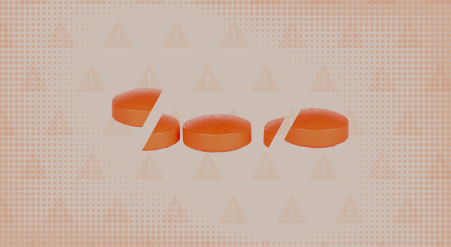Are you considering Auvelity as a treatment option or just curious about its effects? Whatever your reason, understanding the side effects of any medication is crucial for making informed decisions about your health. In this article, we’ll dive deep into Auvelity side effects, breaking down the most common ones you might encounter and how they could impact your daily life. So, let’s get into it!
What Is Auvelity?
Before we jump into the side effects, let’s first get to know what Auvelity is. Auvelity is a prescription medication primarily used to treat major depressive disorder (MDD). It’s a combination of two active ingredients: dextromethorphan and bupropion. Dextromethorphan works on neurotransmitters like serotonin and norepinephrine, while bupropion helps with dopamine levels. Together, they aim to improve mood and mental health. But, as with any medication, understanding the Auvelity side effects is essential before starting this treatment.
How Does Auvelity Work?
Auvelity works by balancing certain chemicals in the brain that influence mood and emotions. Think of it as a reset button for your brain’s communication system. By targeting neurotransmitters, it helps reduce symptoms of depression, making you feel more like yourself again. But even though it sounds great, the medication doesn’t come without its downsides, especially when it comes to side effects.
Why Do Side Effects Occur?
Side effects happen because the body is trying to adjust to the new medication. Every person’s system reacts differently, so while one person might experience mild discomfort, another could have more severe reactions. Side effects are the body’s way of saying, “Hey, something new is happening here!” With Auvelity, side effects can vary from minor to more significant issues, and being aware of them can help you manage expectations and recognize when something isn’t quite right.
Common Side Effects of Auvelity
Let’s break down the Auvelity side effects that are most commonly reported. These side effects might sound scary, but remember that not everyone will experience them, and they can range from mild to more bothersome.
1. Dizziness and Lightheadedness
One of the most common side effects of Auvelity is dizziness. Imagine standing up too quickly and feeling a bit wobbly—that’s the sensation some users describe. This side effect can be more pronounced at the beginning of the treatment or when the dosage is increased. It’s best to avoid sudden movements, like jumping out of bed too quickly, to minimize the chances of feeling dizzy.
2. Dry Mouth
Dry mouth is another frequent side effect. Ever felt like you’ve been walking in a desert without water? That’s what dry mouth feels like. This happens because Auvelity can affect saliva production. Sipping water regularly, chewing sugar-free gum, or using mouth sprays can help alleviate this uncomfortable sensation.
3. Insomnia or Trouble Sleeping
Struggling to fall asleep or stay asleep? Insomnia is a known side effect of Auvelity. Since the medication affects brain activity, it can sometimes make it harder for the brain to “switch off” at night. Creating a calming bedtime routine, avoiding caffeine late in the day, and limiting screen time before bed can help manage this issue.
4. Nausea
Feeling queasy is no fun, and nausea is a common side effect of Auvelity. This could be a mild sensation or more intense, making you feel like you’ve been on a never-ending roller coaster ride. Taking the medication with food or a light snack can often help reduce this uncomfortable feeling.
5. Headaches
Headaches are another side effect you might experience while taking Auvelity. It’s like having a nagging pain that just won’t quit. Over-the-counter pain relievers can usually help, but always consult your doctor before adding any additional medications to your routine.
Less Common, But Notable Side Effects
While the above side effects are more commonly reported, there are others that, while less frequent, still deserve attention. It’s always better to be prepared, right?
1. Increased Heart Rate or Palpitations
Some people may notice their heart beating faster than usual, which can be alarming. This is due to bupropion, one of the components of Auvelity, which can stimulate the cardiovascular system. If you experience rapid heartbeats regularly, it’s important to reach out to your healthcare provider.
2. Blurred Vision
Occasionally, Auvelity can cause vision disturbances, making things appear out of focus. It’s like looking through a foggy window. If this side effect occurs, avoid driving or operating heavy machinery until your vision clears.
3. Weight Changes
Fluctuations in weight, whether gain or loss, can also happen. This is usually due to changes in appetite or metabolism. Maintaining a balanced diet and regular exercise can help keep your weight stable.
4. Anxiety or Restlessness
Ironically, while Auvelity is meant to help improve mood, some people may feel more anxious or restless. This is often temporary, but if these feelings persist, it’s important to discuss them with your doctor to adjust your treatment plan.
Rare but Serious Side Effects
While rare, there are some serious Auvelity side effects that need immediate medical attention. Knowing these can make a huge difference in managing your treatment safely.
1. Seizures
Seizures are a rare but serious side effect associated with bupropion, especially in people with a history of seizures or eating disorders. It’s like your brain hitting a hard reset unexpectedly. If you experience a seizure, seek medical help right away.
2. Severe Allergic Reactions
Although rare, allergic reactions such as swelling, rash, or difficulty breathing can occur. This can be life-threatening, so if you notice any signs of a severe allergic reaction, don’t hesitate to get emergency medical help.
Managing Auvelity Side Effects
So, how do you manage these side effects if they pop up? Here are some practical tips:
- Stay Hydrated: Drinking plenty of water can help with dry mouth, dizziness, and headaches.
- Eat Small, Frequent Meals: This can help combat nausea and keep your energy levels up.
- Monitor Your Sleep: Establish a sleep routine to help manage insomnia.
- Stay in Touch with Your Doctor: Always communicate with your healthcare provider about any new or worsening side effects. They can adjust your dose or suggest other medications to alleviate your symptoms.
When to Contact Your Doctor
If you’re feeling overwhelmed by any of these Auvelity side effects, it’s crucial to speak with your doctor. They can help you weigh the benefits of continuing the medication against the impact of the side effects. Never stop taking Auvelity abruptly without consulting your healthcare provider, as this could worsen your symptoms or cause withdrawal effects.
Conclusion
Auvelity can be a game-changer for those battling depression, but like all medications, it comes with its fair share of side effects. Understanding the most common Auvelity side effects—from dizziness and dry mouth to more serious risks like seizures—can empower you to make informed choices about your treatment. Remember, side effects vary from person to person, and what’s important is to stay in tune with your body and maintain open communication with your healthcare provider. With the right approach, you can manage side effects and focus on what really matters—feeling better and enjoying life again.



